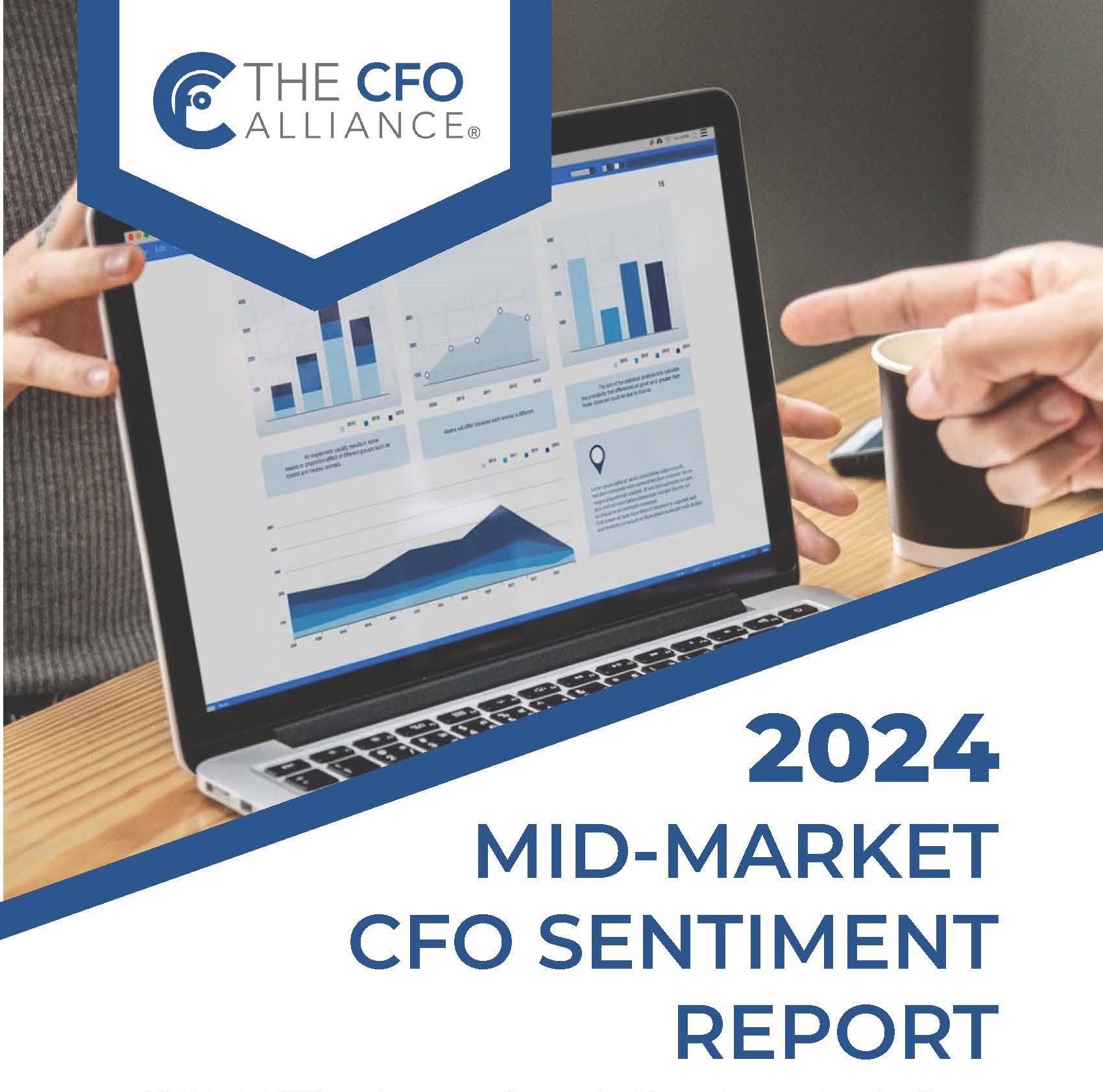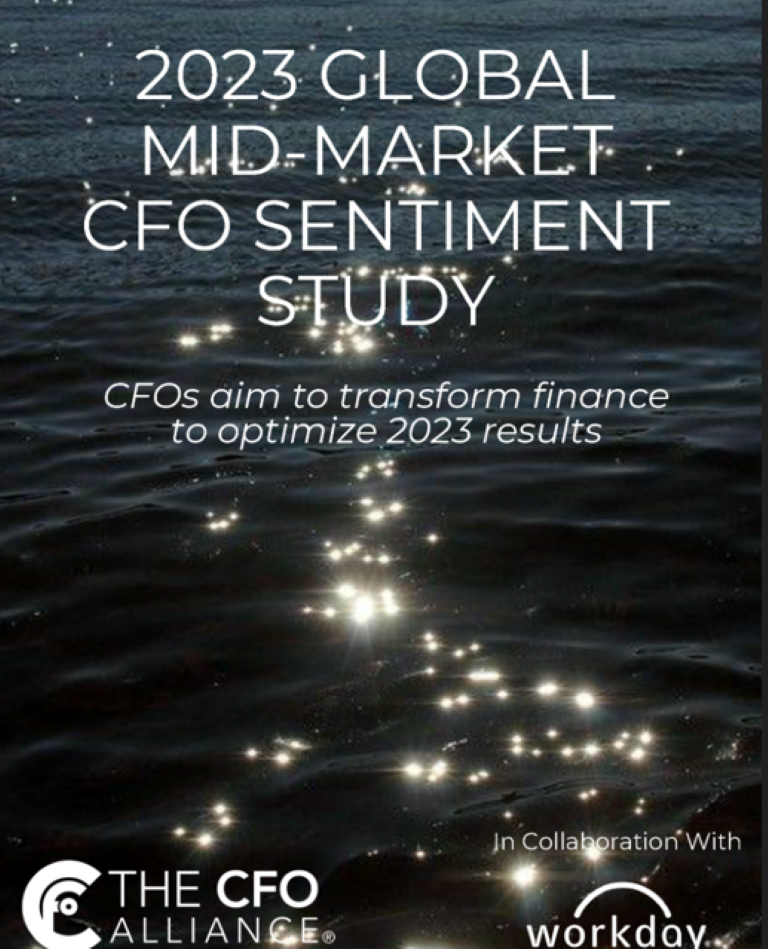The Same Pragmatism and Fact-based Approach CFOs Apply to Everything Will Work for AI Strategies
When the “next new tech thing” arrives, the world tends to bifurcate into two main camps. Each digs a trench and rationalizes their positions – at least initially.
- The first-mover, early adopter camp sees an oncoming bullet-train that they must jump on before they get left behind.
- The show-me, borderline-cynical camp dismisses shiny objects and plows forward into their version of conventional wisdom and today’s reality.
Somewhere in between are the undecideds. The curious inquisitor camp asks, What is it? Why now? Why should I care? And What should I do about it?
Although tech pioneers have been utilizing AI in primitive and reasonably advanced forms dating back to the 1950s, ChatGPT gave the world a glimpse into AI’s accessibility and power. Generative AI sent tech’s equivalent of a nuclear shockwave into the minds and hearts of the business masses. Creatives, manual task masters, and numbers crunchers headed for the hills to worry. On one hand it was viewed as hyper hype. On the other, it was a game changer. Fear of missing out drove quick AI-infused updates to the value narratives of external service providers. Internally, enterprises started the journey of understanding AI. The enterprises with experimental back-office application case studies already in place assigned research projects to explore AI’s potential impact and value more broadly. On a wholesale level, most business owners and executives have been backing AI, some with sights focused on efficiencies and business performance improvement and others with sights centered more on the possibilities of new labor models and AI as a skill leveler.
Where Do CFO’s Go from Here?
Each camp can be (or feel) right until they know more. So, Job 1 is knowing. Hard-hitting questions are vital at this stage. But looking at the state of things now, some enterprises will make AI happen. Others will watch AI happen. And others will end up wondering, What happened?
At the enterprise level, and simply stated, CFOs must understand AI’s potential impacts in the context of their entire value chains. The upside is that there’s no need for a CFO to morph into a CTO to understand how AI can add value.
For each enterprise and functional problem and opportunity area, a great clearinghouse question for CFOs is, What will AI do better and what is better worth? That question will get CFOs into the AI assessment game, yield answers well down on the adoption abstraction ladder and be of value, and also distill groupthink into purposeful action with pragmatism.
There is a lot of focus on the low hanging fruit of process automation and streamlining workflows. But the real AI-enabled jewels are likely to be more strategic . . . better market understanding, data integrity, more informed analyses, quicker scenarioizing, better predictability and forward visibility, more timely decisions, and growth. These are the bigger outcomes requiring CFOs to take a what-if posture and a wide-angle view of what AI can deliver for customers and the business. Exploring the deep end of these strategic outcomes is prudent.
Closer to home, the Finance function can perform better with AI. Putting aside Gartner’s expected tech-heavy slant, their concept of Autonomous Finance paints an end-point vision of AI’s power for the function Autonomous Finance – Everything a CFO Should Know | Gartner. For mid-market outfits who don’t need to land on that vision any time soon, the concept of an automated, data-rich, and future-proof Finance function is still useful for understanding the transformative power of AI. Seeing the landscape and tentacles of AI sets the stage for CFOs cherry picking pragmatic point solutions that are useful now while developing a radar of more advanced solutions for probable future needs.
De-mystify AI for Finance and the Enterprise
Regardless of which AI camp you may be in now, there’s much to assimilate. That’s why we’re taking on a comprehensive and practical what-CFOs-need-to-know approach for The CFO Alliance Q4 Roundtable Series theme:
"AI, Outsource, or Status Quo: Navigating ERP Impact - How AI Applications and New Labor Models Impact Various ERP Systems, Finance Functions, and What CFOs Need to Know to Plan for Disruption."
AI is Going to be Big
Forbes predicts AI investments will exceed $400 billion by 2027. Yet, AI is a tool, an enabler, and a tactic that calls to mind a passage in The Art of War by Sun Tsu,
“Tactics without strategy is the noise heard before defeat.”
So, this is a time for calm and a perfect opportunity for finance leaders to engage with experts on AI realities, strategies, and future possibilities.
This is also a time for smart. The ability to exchange ideas and share insights on early test cases with a panel of experts and peers at such a scale will arm CFOs with transformative perspectives and take-aways they can put to work. Session content is specifically geared to enable CFOs and Finance executives to grasp the complexities of AI integration with ERP systems and finance functions, effectively plan for disruption, and capitalize on AI's potential while maintaining a balance between traditional practices and innovation.
Join us for this impactful roundtable series to get informed and stay ahead in the ever-evolving landscape of finance and technology. Access the schedule and locations, and register for the Q4 Roundtables (here).
See you there!




